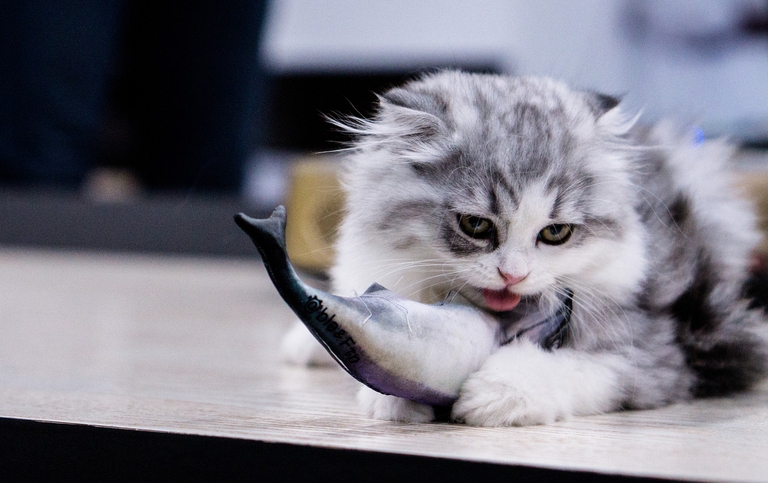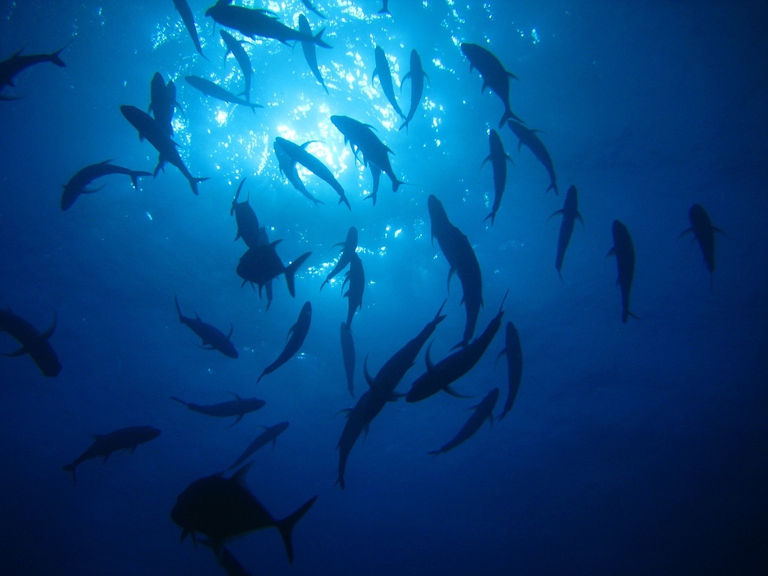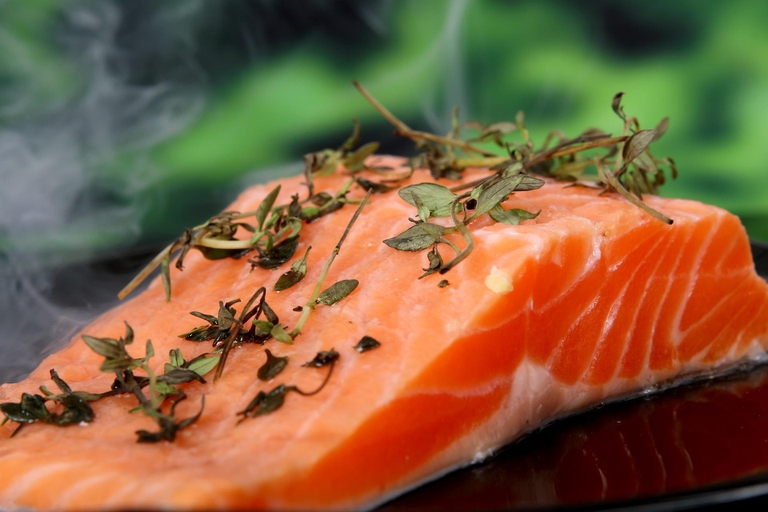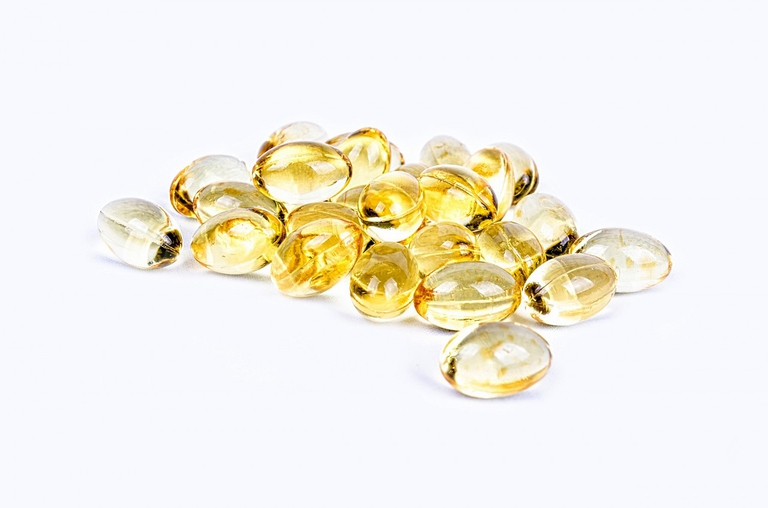https://www.lifegate.it/mare-cani-gatti-alimentazione
- |
- The sea is an excellent source of well-being for our four-legged companions.
- It is important, however, to choose fish according to seasonality so as not to deplete marine resources.
- Active substances that make up effective supplements for dogs and cats also arrive from the sea.
Health comes from sea.And also the well-being of the organism, a quality increasingly sought after in the diets and nutrition of our four-legged friends.Fish, in fact, is an excellent food for dogs And cats, rich in proteins of high biological value.And it also excels in "good" polyunsaturated fats, essential for proper nutrition.Four-legged friends can eat this food every day, but be careful to change the species chosen to follow seasonality and help the planet respect the mating methods of fish, establishing their consumption fairly season by season.And it doesn't end here.The health of our animals is also enriched with the beneficial contribution of supplements which originate from the sea.And they prove to be indispensable for giving well-being to the body.

The sea is good for health, even for dogs and cats
The sea has always been a privileged source of health and life for human beings.And it is even more so for pets who often find an optimal state of health with the help of fish and their derivatives.“Dogs and cats can eat fish daily.It's good to know, though, that that white (cod, hake, sole) tends to be more digestible as it is leaner.The blue fish, on the contrary, (anchovies, mackerel, sardines) is fatter, but very rich in omega 3, fundamental substances for well-being and health”, explains the Doctor Chiara Dissegna, veterinary doctor and animal nutrition expert.
“It is essential to follow the seasonality of fish products:this allows us to feed (us and our animals) with local fish available at that moment in large quantities, safeguarding the existence of other species which are left alone during their reproductive period.Eating 'seasonal fish' is not only ethical, but also economical;seasonal fish species, in fact, tend to cost less", adds Dr. Dissegna.And, all of this, in an era of economic restrictions and market crises, also becomes fundamental for the portfolio.

The choice of fish according to the seasons
The sea is a great reservoir of life.But precisely in order not to deplete the reserves it is essential to choose the fish according to seasonality and presence on the fish market.Doctor Chiara Dissegna provided us with a quick list of the most suitable fish and months for purchasing and consuming which applies both to us and to our animal friends.These species are also considered as “excellent” or “good” choice by guide to sustainable fish .
- Summer:sea bream, sardine, anchovy, gurnard, amberjack, sea bream
- Fall:sea bass, red mullet, turbot, dolphin fish, gurnard
- Winter:amberjack, sea bream, mackerel, octopus, cuttlefish, red mullet, sea bream
- Spring:mackerel, gurnard, sea bream, sea bass, sea bass, sea bream

The sea as a supplement for animal welfare
Very important supplements for animal well-being also come from the depths of the sea.Here are the main ones:
- fish or krill oil, they are both two products very rich in epa (the'eicosapentaenoic acid) And dha (the'docosahexaenoic acid), the basic essential fatty acids for the well-being of dogs and cats.Supplements based on these substances allow the intake of high concentrations of EPA and DHA, which could not be obtained with the intake of fish alone.The best products are those that can certify the purity and elimination of contaminating substances from the raw materials used.
- Perna canaliculis (or green mussel), both come from New Zealand, they are larger in size than our mussels and contain a good quantity of glycosaminoglycans (gag) which can be used as a supplement in the management of joint problems.
- marine collagen:it is the main fibrous structural protein in the extracellular matrix and connective tissue of animals.It is a primary building block of bones, tendons, skin, cartilage and all joints in the body.Marine resources for collagen production include both invertebrates and vertebrates, such as sponges, coral red algae, sea urchins, octopus, squid, jellyfish, cuttlefish, starfish, sea anemones and shrimp;note that much of the biomass used for the extraction of collagen is a by-product of the processing of fish for food use (such as fish skins, scales) with undoubted economic and environmental advantages.

The importance of omega 3 and 6
Substances known by the name of omega 3 And 6 they are essential for the health of humans and animals."The fatty acids they are fundamental components of lipids, commonly called fats.In nature we find them in solid or liquid form based on their chemical structure.Furthermore, these molecules contain double the energy compared to carbohydrates and proteins:this makes fat the most efficient way for living organisms to store energy.In general, fatty acids are chemically classified into saturated, stable molecules without double bonds between carbon and carbon e unsaturated. The latter are more reactive molecules, made up of double bonds and for this reason in turn classified into monounsaturated, with only one double bond, e polyunsaturated with two or more double bonds.Among all fatty acids, there is a category called, precisely, essential, i.e. fatty acids that are not synthesized by the body and therefore must necessarily be introduced with the diet”, explains Dissegna again.
The omega 3 family is numerous, those of particular importance are the epa and i dha.They are the true active anti-inflammatory and structural function forms, therefore they are important for the health of dogs and cats.The best sources for supplementing your diet with EPA and DHA are the fish, thefish oil And the products on the market in the form of specific omega 3 pearls (coming from purified fish, krill or seaweed oil).
“Be careful of vegetable oils like thelinseed oil, rich in 'wing' (alpha-linolenic acid), an essential fatty acid of the omega 3 series of plant origin.It is a precursor form of the active ones and our four-legged friends have very little, if any, ability to convert it into its active form.It is therefore useless to give supplements containing omega 3 of plant origin thinking that they can perform the same functions as those for fish or krill.We can use the former in dogs and cats, but not with the same functionality as EPA and DHA.The only exception is omega 3 extracted from algae, which despite being of vegetal source, actually contain the active forms EPA and DHA", explains Dr. Dissegna.

The sea is a precious reservoir of omega 3 and 6
The optimal sources of these precious substances come from the sea.“Fatter fish like sardines caught in the sea have a greater quantity than lean fish (the cod for example).The farmed salmon, which did not live off the normal food chain of wild salmon, could, on the contrary, contain low quantities.Also pay attention to cooking because EPA and DHA are sensitive to high temperatures.Therefore, if the fish is cooked, it is possible that some of the fatty acids have been lost.Furthermore, it must be considered that, even if the fattier ones contain a greater percentage, the quantity will not be sufficient from a preventive perspective.In fact, a lot of it is needed to cover the useful needs of a healthy dog or cat for the prevention or treatment of pathologies", continues the expert.

This is why the integration products on the market become fundamental.But be careful:If you have to choose between fish oil and pearls, nutritionists recommend the latter because they are safer.In fact, they undergo manufacturing processes that guarantee the purity of the product.“We read the labels paying attention to the quantity of EPA and DHA present:if the percentage or weight is not specified, it is better to choose another one.Furthermore, it is advisable to purchase the pearl supplement where the absence of is specified heavy metals or harmful substances”, concludes Dr. Chiara Dissegna.The sea, therefore, as a source of life.Let us not forget, however, even in this case that the food reserves of the deep sea must be preserved and respect for the environment, in this case, becomes essential.
